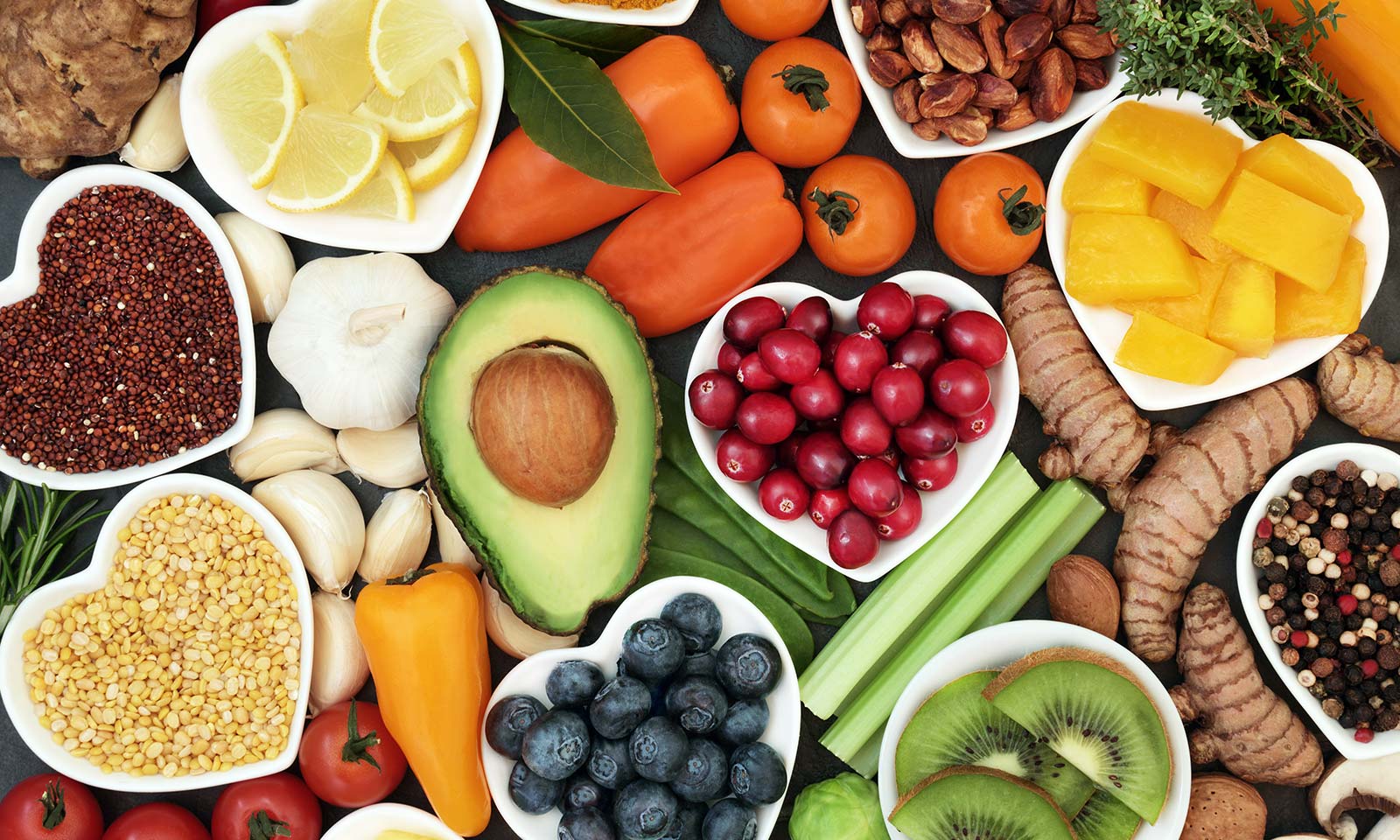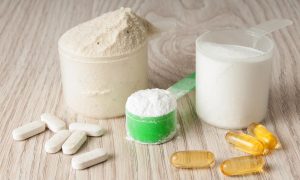The Only Guide to Vitamins and Minerals You Will Ever Need

|
|
Every single day we see adverts on the TV or online, from nutritionists, health experts, and health companies, talking about the importance of healthy eating. Healthy eating is indeed a vital part of everyday life, yet many of us are unfortunately not doing everything in our power to eat the right foods and drink the right beverages. One of the main reasons for this is that we’re simply not sure of what we should be eating. When we think of healthy eating, generally we think of fresh fruits vegetables, and salads. While these food stuffs so generally contain plenty of nutrients, there are countless other foods out there that people are ignoring because they aren’t sure of just how healthy they are. The reason why we know fresh fruits and vegetables are so healthy and good for us is because they are full of vitamins and minerals. Vitamins and minerals are literally essential for day to day living, but can you honestly say that you know not only how many different examples there are, but how much you should be consuming each day, where they are found, and what they do? No? Great, then you’re at the right place. Make sure to continue reading as we will now be providing you with the only guide to vitamins and minerals that you will ever need.
Vitamins

We shall begin proceedings by looking at vitamins. You know vitamins are very good for you, but do you know why that is? You probably know that vitamins help to boost the immune system but in reality, they do much more than that. When people think of vitamins they instantly think of vitamin C as being the Holy Grail of the vitamin world. Don’t get us wrong, vitamin C is indeed a fantastic vitamin and it does play a vital role in regards to our health and well-being, but there are many more vitamins than just C. In actual fact there are 13 essential vitamins. Vitamins are organic compounds that play key roles in the development, health, growth, and function of our cells. What’s more, each one behaves in a different way and has a different effect on the body to the last. Not only that, but some of said vitamins are known as water-soluble vitamins, while others are fat-soluble. What does that mean exactly? Well, let’s take a look:
Water-soluble vitamins
Water-soluble vitamins are vitamins that can be broken down and absorbed by the body with the help of water. The human body is made up of almost 80% water, so don’t worry too much about ensuring you chug a glass of water with every vitamin supplement you consume. Water-soluble vitamins can therefore be absorbed directly by the cells, and any left over are flushed from the body and excreted in our urine. The following vitamins are water-soluble:
- Vitamin C
- All B complex vitamins
- Biotin
- Folic acid
- Niacin
- Pantothenic acid
Fat-soluble vitamins
Fat-soluble vitamins are vitamins which can only be broken down and absorbed by the body in the presence of lipids (fats). These vitamins bind themselves to fat molecules within the digestive system and are then persevered by the body and are stored to be used in the future when needed. Because of this, fewer are wasted meaning deficiencies in these vitamins is far less common. The following are fat-soluble vitamins:
- Vitamin A
- Vitamin K
- Vitamin D
- And Vitamin E
Now, it is worth noting that, because the body stores any excess fat-soluble vitamins once it has used what it needs, it is much easier to consume too many of these vitamins, which, in high dosages, can become toxic. Water-soluble vitamins are simply excreted in the urine when the body is done with them, making over-consumption far less of a concern.
What are some of the more important vitamins?
In reality all vitamins are important, but as we only have a limited amount of words, we can’t look at each vitamin in great detail, as we still have minerals to get through. Instead, what we shall do is look at some of the more important vitamins, both, fat and water-soluble, and learn more about them.
Vitamin C

Ah, good ole faithful vitamin C. Available in stores nationwide and renowned for its ability to ward off cold and flu viruses and strengthen the immune system, it’s easy to see why this is considered king of the vitamin world. Vitamin C is also known as ascorbic acid and it functions in the body as an antioxidant. This vitamin is water-soluble, so it is easily absorbed but at the same time, as any excess is excreted, we must ensure we replenish our vitamin C levels on a daily basis if we wish to reap the true rewards. Vitamin C has been found to protect our cells and prevent oxidative stress and damage, plus it helps boost white blood cell counts and therefore strengthens the immune system, plus it promotes healthy circulation, and is even great for the skin. Experts recommend dosages of at least 90mg for men, and 75mg for women per day, though 1000mg vitamin C supplements have proven to be very effective at warding off illness. As well as in supplement form, get your vitamin C from green leafy vegetables, and citrus fruits like oranges, limes, and lemons. In reality, most fruits and vegetables contain decent amounts of vitamin C, so make of that info what you will.
Vitamin D
Vitamin D is sometimes known as the ‘sunshine vitamin’. People often think that our bodies absorb vitamin D from sunlight, but that is not true. In actual fact, when exposed to sunlight, our bodies begin producing vitamin D naturally. Vitamin D is a fat-soluble vitamin that has been found to strengthen the bones because it enables the bones to absorb calcium (more on that later) plus it is great for the heart, the immune system, the metabolism, and the brain. Vitamin D is commonly found in foods such as eggs, meat, and oily fish, though supplements, often with added calcium, are also very useful. Experts recommend a max intake of 1,100mg of vitamin D per day.
Vitamin A
Yet another fat-soluble vitamin, you may have heard vitamin A being referred to as Retinol. Vitamin A provides a number of benefits for the human body, and in particular, it is renowned for its ability to help promote healthy vision and ocular health. It also has antioxidant properties that boost immunity and protect our cells, helping to ward off illness and disease, including many forms of cancer. Vitamin A is also great for the cells as it encourages the reproduction of both, red, and white blood cells. One common misconception is that beta-carotene, the incredibly healthy antioxidant, is in fact found in vitamin A. It isn’t. Beta-carotene is in fact converted into vitamin A once consumed. As vitamin A is so beneficial for our eyes, and as carrots are packed so full of beta-carotene, this is why the old saying goes that carrots help you to see in the dark.
Vitamin B6
Vitamin B6, like the other B-complex vitamins, is water-soluble and plays a key role in a person’s metabolic health and function. Without B vitamins our metabolisms wouldn’t function as they should, and by default, we’d have far less energy and would find it harder to lose weight. Vitamin B6 however, is special because it also plays a vital role in a person’s emotional health and well-being. The production of serotonin relies heavily on a strong presence of vitamin B6. Serotonin is a chemical produced by the brain that helps regulate our appetite, relaxation, sleeping patterns, and mood in general. Without serotonin we would struggle to sleep at night, our stress and anxiety levels would be through the roof, and we’d struggle to relax and unwind. The benefits of B6 don’t stop there however, as it has also been found to boost cognitive health and assist with the formation of haemoglobin and red blood cells. Experts recommend a minimum of 1.3mg of B6 per day. As well as B6 supplements, you will also find vitamin B6 in foods like salmon, oily fish, spinach, bananas, and baked potatoes, especially in the skin.
Minerals

Now that we’ve looked at some of the main vitamins out there, it’s now time to look at minerals. Minerals are just as important as vitamins in terms of health and well-being, and in fact, some would argue that they’re even more so important. Minerals contain no carbon molecules, making them inorganic substances. They also happen to be incredibly important for countless physiological processes within the human body, which is why getting enough of each one is so important. There are actually two different classifications of mineral to choose from, with trace minerals being minerals that the body only needs in small dosages, and macrominerals, which the body needs in concentrated dosages. Here are some, not all, just some, of the most important minerals you are likely to come across:
Calcium
We’ll begin with good old calcium, and no doubt you already know what calcium is good for. If you don’t, calcium is vital for optimal bone health and function, plus it helps strengthen the teeth. What you may not know about calcium however, is the fact that it is also very important for muscle function, blood pressure, hormone regulation, and blood clotting. Experts recommend 1000mg of calcium per day, which ideally should come primarily from whole foods, though calcium supplements can also prove useful, providing you don’t consume too many. You will find calcium in dairy produce like cheese and milk, but on top of that it is also present in green leafy vegetables like spinach and kale. In fact, pound for pound, spinach contains more calcium than milk.
Iron
Iron isn’t just a great metal for making things with, it’s also very important for our bodies. Iron has been found to help strengthen the immune system, but it is iron’s benefits on the circulatory system, that really help it grab so much attention. Iron is essential for the production of haemoglobin, which helps red blood cells in the body to transport oxygen via the bloodstream to the cells. This is obviously very important for muscle health and athletic performance and it is why a number of athletes and bodybuilders will include iron supplements in their supplement stacks. In terms of dosages, women actually require more iron than men, as minimum dosages stand at around 18mg for women, and 8mg for men. You should exceed no more than 45mg per day, as too much iron can be toxic for the body. Some of the best sources of iron include supplements, red meat, oysters, shell fish, and lentils.
Magnesium
Magnesium is yet another mineral that we require in high dosages, making it a micromineral. It is best used in conjunction with calcium as it works by assisting with muscle contraction, blood clotting, cellular signalling, regulation of blood pressure, boosting the immune system, and promoting healthy and strong teeth and bones. Men require a minimum of 400mg of magnesium per day, whereas women require slightly less, coming in at 310mg. Just be wary of magnesium supplements, as men and women alike should not exceed 350mg of magnesium per day from supplements. From whole foods however, you can consume as much magnesium as you like. Commonly you will find magnesium in foods such as: bran, bananas, spinach, and almonds. As well as in supplement form of course.
Zinc
This trace element is very important as it functions as a building block for cells, proteins, and enzymes. Zinc also allows the body to utilize vitamin A stored in the body, making it a very useful mineral to consume. Zinc helps regulate hormones, it boosts white blood cell counts, it helps provide energy by boosting the metabolism, plus it helps form blood platelets to assist with the healing of wounds. Experts recommend a minimum of 11mg per day for men, and 8mg per day for women. Zinc is commonly found in supplement form, as well as in shellfish like oysters, dairy, turkey, beef, and in cashew nuts.














